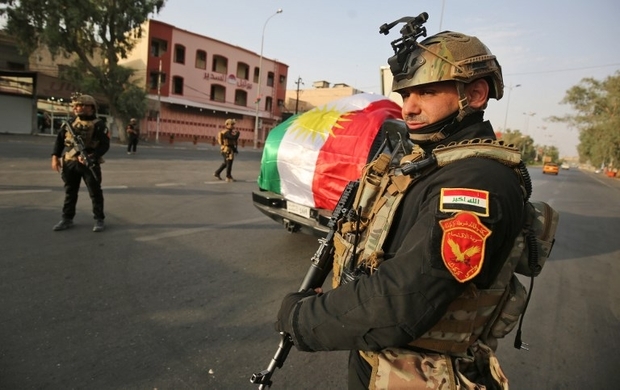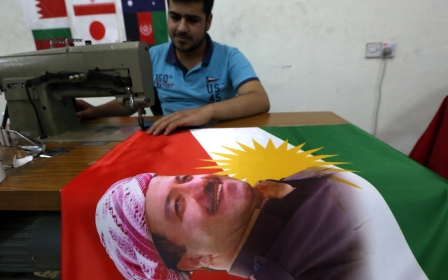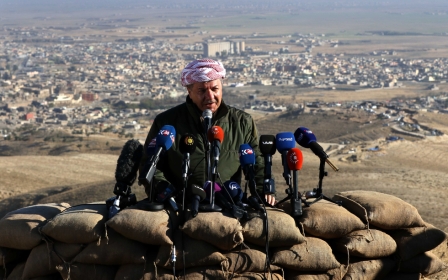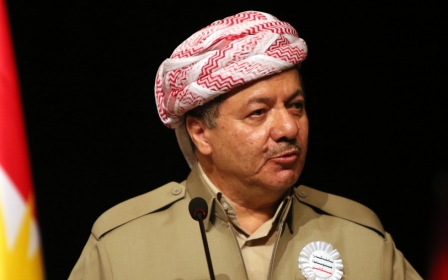Iraqi Kurds accept court decision to ban secession from Baghdad

Iraqi Kurdish authorities said on Tuesday they would accept a court decision prohibiting the region from seceding, signalling a new phase in efforts to restart stalled negotiations over its future.
Iraq's Kurds voted overwhelmingly for independence in a referendum in September, defying the central government in Baghdad - which had ruled the ballot illegal - as well as neighbouring Turkey and Iran which have their own Kurdish minorities.
The Kurdistan Regional Government (KRG) said on Tuesday it would respect the 6 November ruling by the Supreme Federal Court, which declared that no Iraqi province could secede.
"We believe that this decision must become a basis for starting an inclusive national dialogue between Erbil and Baghdad to resolve all disputes," the KRG said in a statement.
"We strive for peace and we believe our rights must be safeguarded, as it is stated in the Constitution. To reach a comprehensive agreement, we call for constructive and genuine negotiations in order to build a secure future for all Iraqis.
"We also call upon religious leaders, all Iraqi political parties, civil society organizations and all those who believe in the Constitution, stability and peace to stand against those who encourage hostilities between Arabs and Kurds and use violence and aggression in response to disagreements."
The concession marks the Kurds' latest attempt to revive negotiations with central government, which imposed retaliatory measures following the independence vote.
They included an offensive by Iraqi government forces and the Iran-backed Popular Mobilisation Forces last month to wrest back control from the KRG of the oil city of Kirkuk and other disputed territories.
Iraq's prime minister, Haider al-Abadi, had previously urged the northern semi-autonomous Kurdish region to abide by the court's decision.
The court is responsible for settling disputes between Iraq’s central government and the country's regions and provinces. Its decisions cannot be appealed, though it has no mechanism to enforce its ruling in the Kurdish region.
New MEE newsletter: Jerusalem Dispatch
Sign up to get the latest insights and analysis on Israel-Palestine, alongside Turkey Unpacked and other MEE newsletters
Middle East Eye delivers independent and unrivalled coverage and analysis of the Middle East, North Africa and beyond. To learn more about republishing this content and the associated fees, please fill out this form. More about MEE can be found here.




